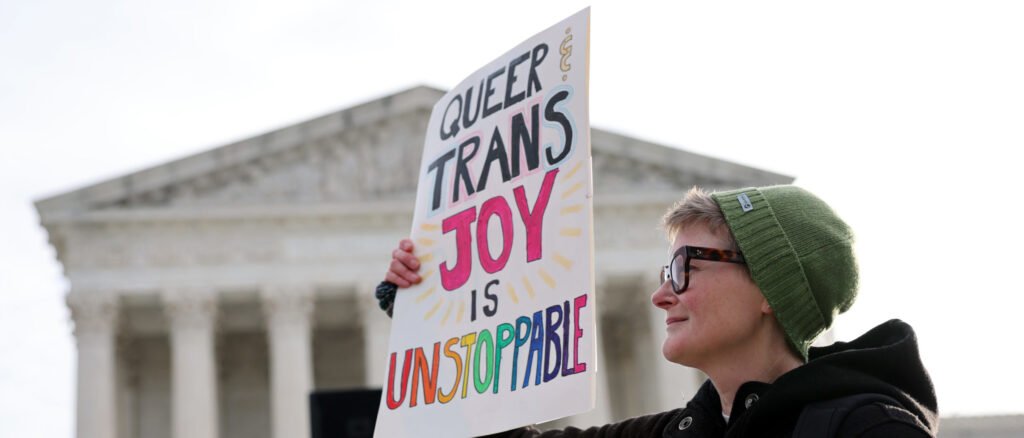Supreme Court Decisions Reflect Public Opinion on Key Issues
The recent ruling from the Supreme Court on various contentious matters is significantly tied to public sentiment, according to data from The New York Times.
While some Democrats voiced their disagreement, public opinion appears to align with the Supreme Court’s stance in several important cases, particularly those concerning religious opt-outs, age verification laws on adult sites, and transgender healthcare for minors.
Interestingly, only about 20% of Americans perceive the Supreme Court as politically neutral, as indicated by a June Reuters/Ipsos poll. Furthermore, only 26% of Republicans hold a favorable view of the court.
A project known as Scotuspoll, which surveyed over 2,200 adults recently, revealed that 77% support allowing parents to opt-out of gender and sexuality instruction, 80% agree that websites should verify user ages, and 64% back the possibility of banning transgender procedures for minors.
Three liberal justices who opposed these rulings criticized the majority opinion, suggesting it could be harmful.
Judge Sonia Sotomayor argued in her dissent regarding the opt-out decision that this could lead to significant disruption in public schools. Judges Ketanji Brown Jackson and Elena Kagan echoed her concerns.
In a separate case, she claimed the majority’s approval would not protect transgender children and their families from harm, a contention that sparked considerable debate.
Destruction: The Supreme Court has ruled 6-3 in a decision that allows for LGBTQ+ discrimination in public schools, namely loss of speech, public education and LGBTQ+ rights.
– Senate Judicial Democrat (@judiciarydems) June 27, 2025
Illinois Democrat Dick Durbin and Oregon’s Jeff Merkley criticized the Skrmetti decision as detrimental. They described it as a license to discriminate against vulnerable children, accusing extremist politicians of using this to further their agendas against transgender individuals.
Durbin emphasized the importance of LGBTQ+ representation in literature, suggesting that children should see themselves in the narratives they encounter. He lamented the ongoing efforts to limit their access to comprehensive education.
Democrats have also expressed disapproval of the Supreme Court’s limitations on the use of national injunctions by local judges, which they previously utilized. Jackson warned of potential negative consequences stemming from this ruling.
The data from the Times noted that the court didn’t address birthright citizenship, which 64% of Americans believe should remain constitutional.
Overview of 3 Liberal Justice:
It is unconstitutional for schools to restrict access to online content.
Parents do not have the right to impose their religious beliefs on educational curricula.
🔹The nation may not limit elective subjects…
– Carrie Severino (@jcnseverino) June 27, 2025
Additionally, the Supreme Court’s decisions have reflected public opinion regarding the Biden administration’s regulations on “ghost guns” and the Food and Drug Administration’s denial of certain product applications.
The Court ruled unanimously on laws regarding the ban of TikTok and addressing employment discrimination standards, though the rate of unanimous decisions has slightly declined recently. Only a small fraction of cases unfolded along ideological lines, predominantly leaning towards a conservative majority.







